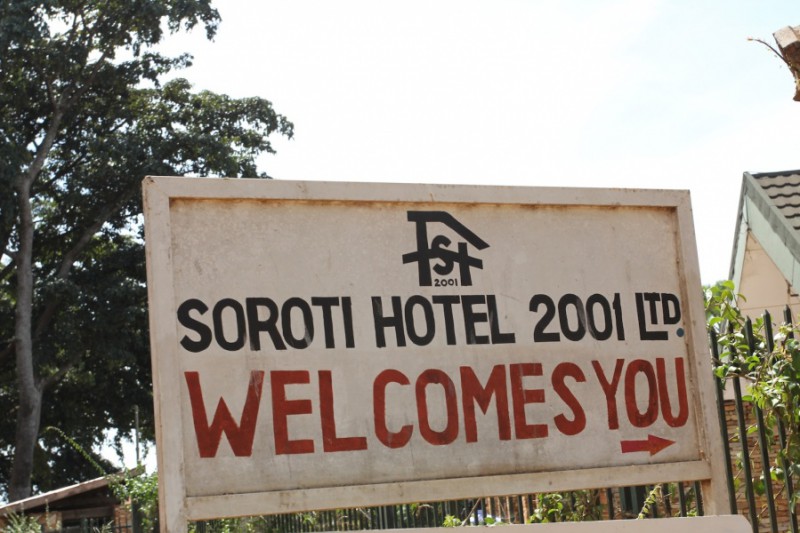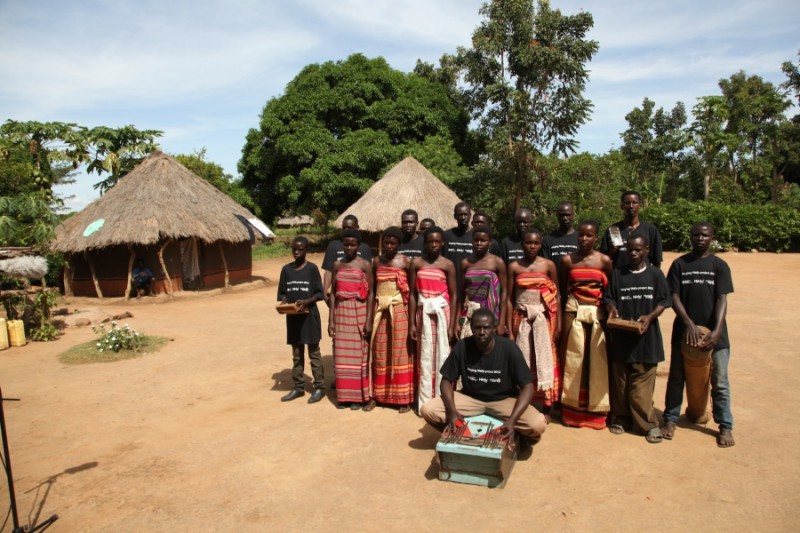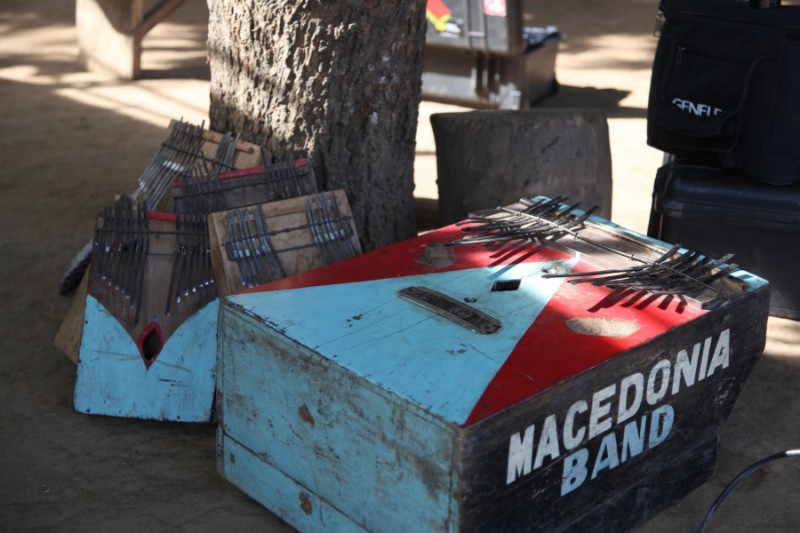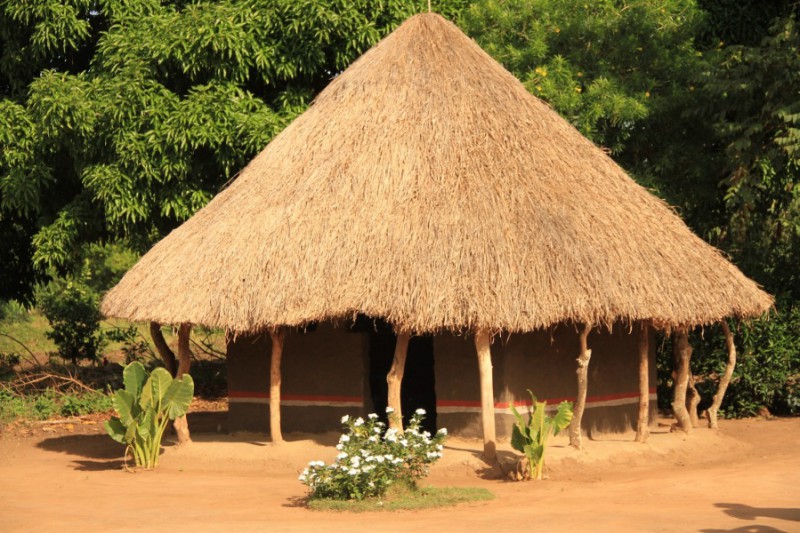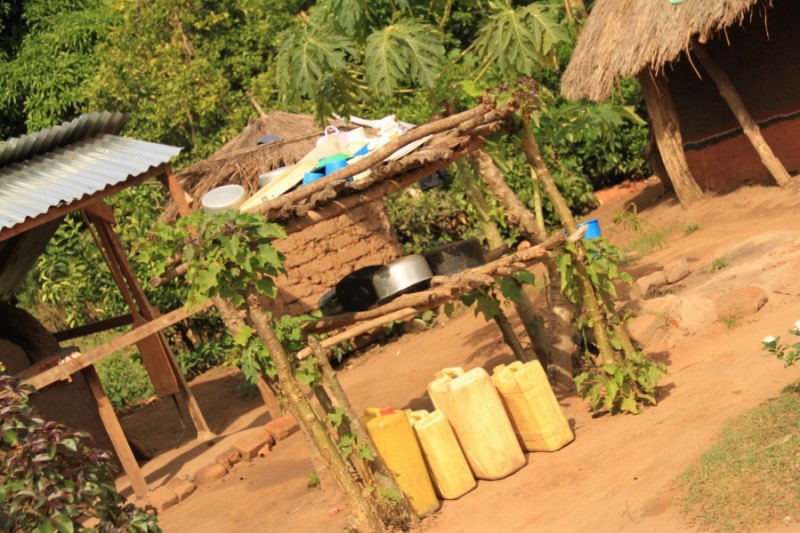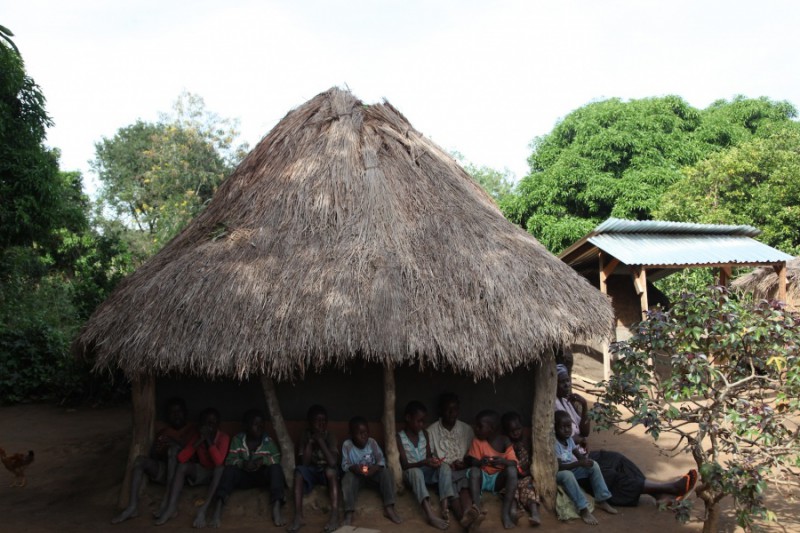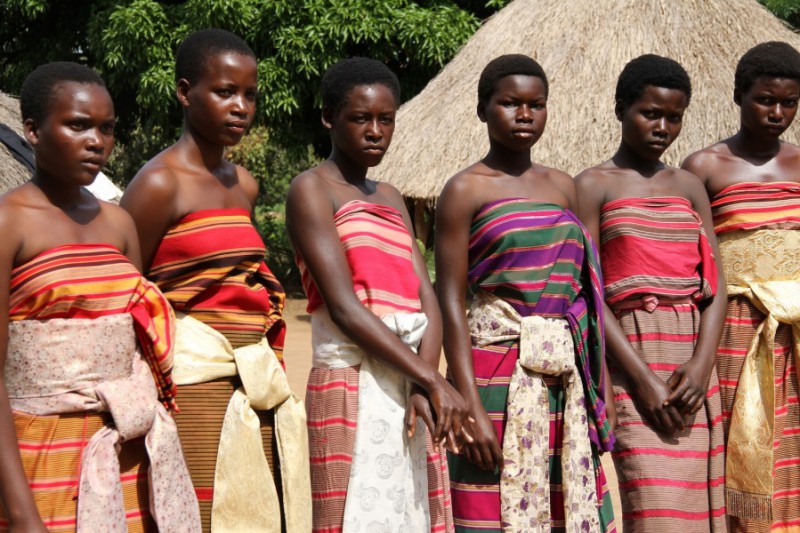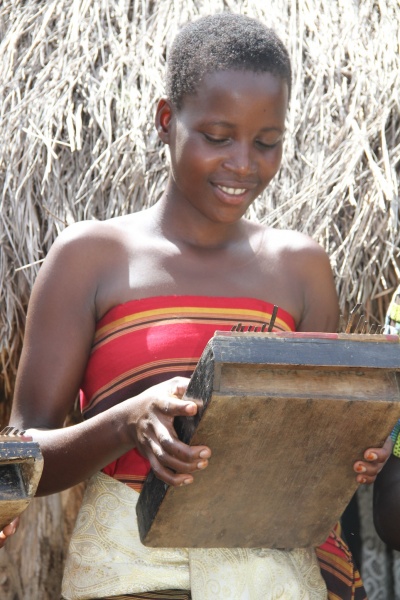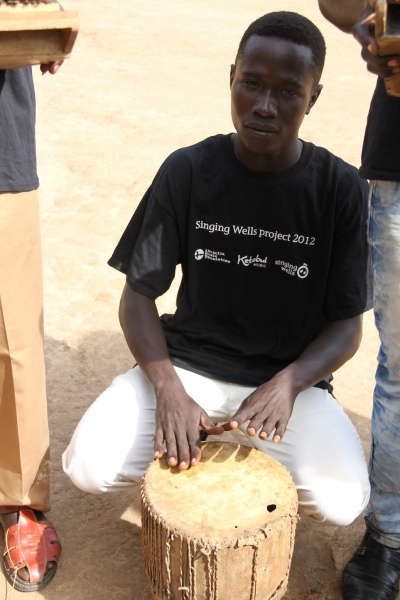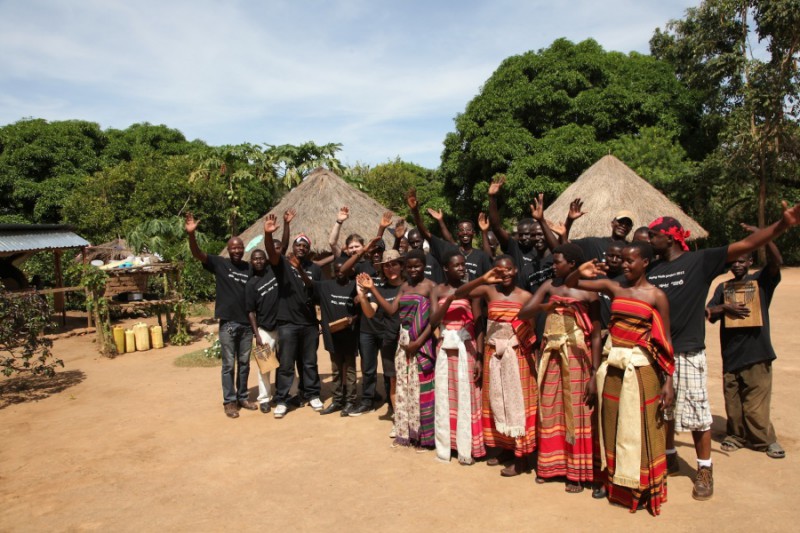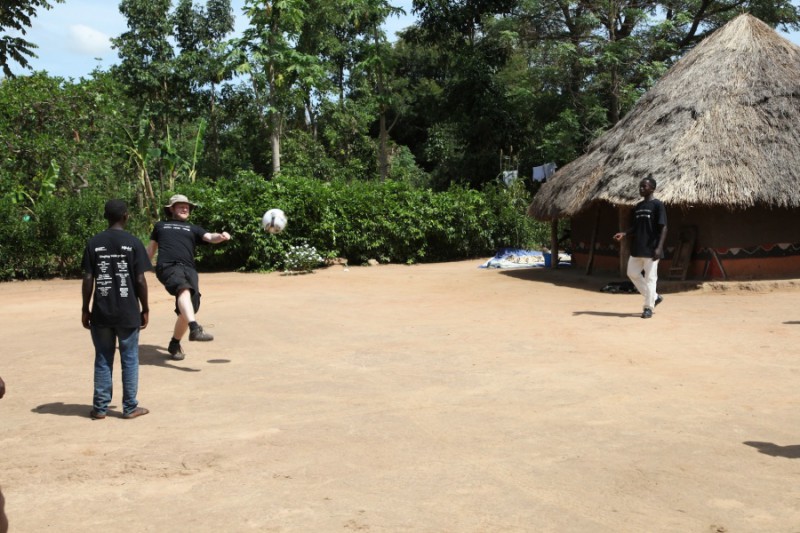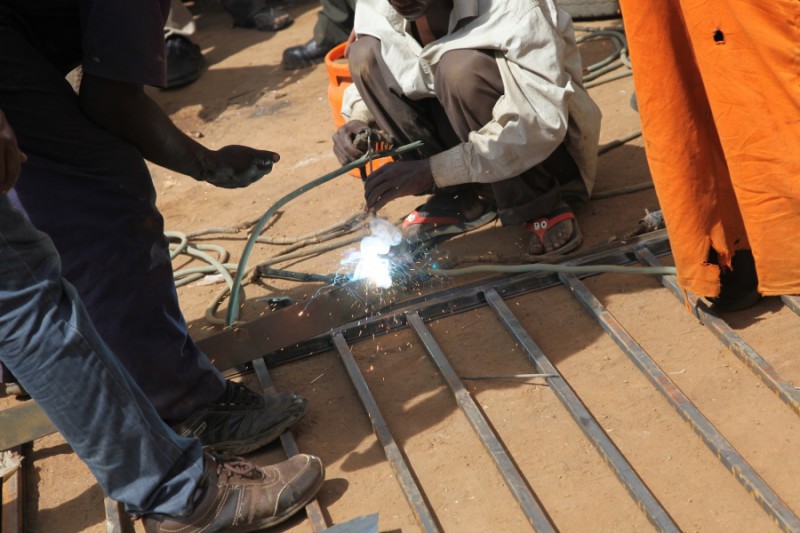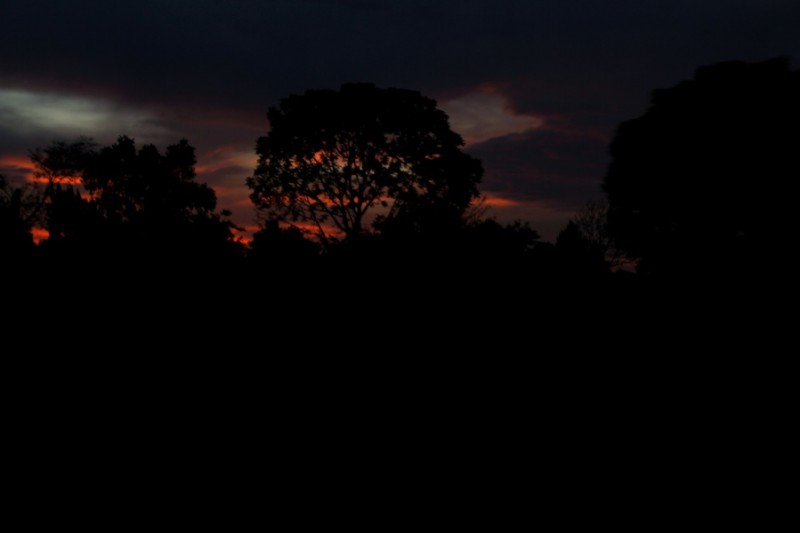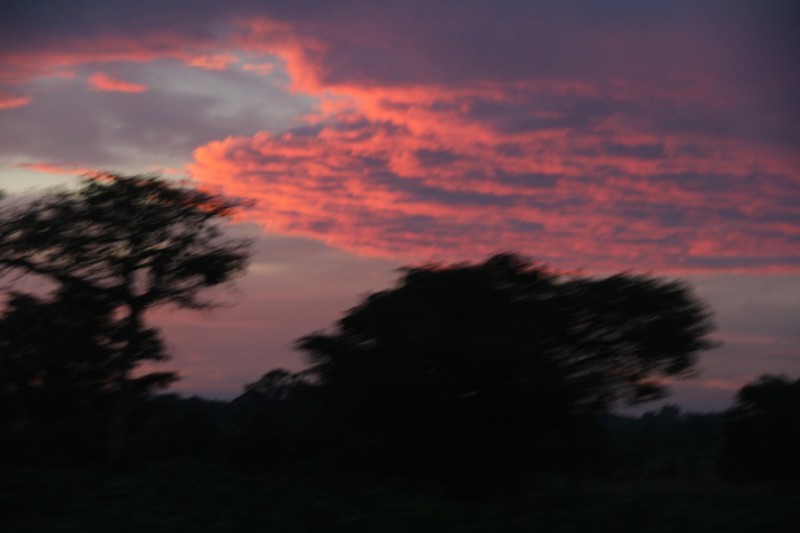A day of two halves, with one of our best village visits combined with a long, nightmare journey to Kampala.
The Macedonia Band
We met the leader of the Macedonia Band at the Soroti Hotel and he led us to his village, Obuell-Lira, a 30 minute drive down rich clay roads. On the way, Joshua told us about the history of the group, which was founded in 1982. The group and its song Uganda Land of Freedom is legendary in the Teso region (the name for the collection of villages around us).
While you read the rest of this, why don’t you play the Magic Moment of the band as a good soundtrack to their story?
During the civil war these villages were under rebel control from 1989-1992. The rebels came into the village to kills the men and seize the boys to take into the bush to fight. But the Macedonia band began to play Uganda Land of Freedom and the rebels started to gather round, starved for music and a chance to relax. An argument broke out amongst the rebels – most wanted to continue the raid and kill the musicians but a small group started to argue that the band could serve a purpose and help provide welcome distractions for the rebels. Eventually, after a few tense hours of debate, the village was spared. The rebels were about to take the young boys as soldiers, but by that time Joshua had gathered the whole village into the band, dancing or banging some percussion instrument. He convinced the rebels that the whole village was the band. And the whole village was spared. Sadly, as Joshua went on, he said that the only way this could happen was for some of the leaders of the rebels to convince the ‘hot heads’ to spare the village was to let them satisfy their blood lust against the next village where 20 men were slaughtered.
For three years, the ‘village band’ played for the rebels and were visited by all the leaders. They refused, however, to play rebel songs or support the rebel side. They said over and over again the music was neutral and only had alligience to Uganda not to one side or the other in the war. There were lots of scary moments when rebels would try to force them to declare alligence or die. But by miracle the rebel leaders let them live and play music as neutrals.
In 1992, the Uganda Army then re-took control of the area. One of their first acts was to go to each village and accuse them of collaborating, typically killing the men under the assumption that they must have fought with the rebels. For Joshua, this was a terrifying moment because the band was known to have played to the rebels. Again, a group of soldiers came into their village and again their mission was to kill the men and boys of the village. And again, Johsua rallied the village and started to play Uganda, Land of Freedome and again a small group of the army felt the village should be spared so the men could have a break. And again, the music prevailed and the band was asked to play for the army. In this case, rather than fulfill their blood lust on a neighboring village, the army spared all the villages in the Teso area. This time, Joshua had learned and said the band was made up of people from every village. Each time someone was threatened in a Teso village, Joshua would call an army officer and explain his key percussionist, or key harpist was under threat. And the officer would intervene. Pretty quickly, everyone in the Teso region carried a thumb piano or a drum and all claimed they were members of Macedonia. The Macedonia band and the song Uganda, Land of Freedom was known by everyone and served dozens of times to spare someone a fast execution as a collaborator.
We then arrived at Joshua’s village. It was the most beautiful we’ve seen with four-five small thatched huts, each painted with patterns. There was a large clay oven in the middle of the village and the whole grounds were landscaped with flowers. The village was so well swept and so often that you could see by the raised area under the huts that they had swept 6 inches of earth from the common areas.
The Macedonia Band is a Likembe Band (thumb or finger harp) with about 8 Lukumbe players and four percussionists. If you recall the ‘bass’ of the Rubanga Kingom band in Awach was a small Likembe on an overturned steel tub. The Macedonia band’s ‘bass’ was a very large (3 foot) Likembe that act as bass and kick drum. They also had 16 dancers, all 12-15 year old girls from the village dressed in lovely robes. The whole band sang ‘response’ vocals to Johsua’s lead. He was also the lead Likembe player. The band is partially sponsored by a church so their songs are a collection of traditional songs, gospel music and ‘education songs’.
This was in the top 5 of Singing Wells moments: great songs, in a spotless village, by a band with such an extraordinary history.
Their first song was Akwapuna, a gospel song which tells of the troubles of life on earth and the promises of peace and happiness in heaven.
The second song was Lubang’a Ber, which is essentially ‘God is Good.’
This was followed by ‘Seeds and Land’, an education song in English telling people to value and work the land, using it to solve their poverty.
The fourth song was Yesu Alisema, essentially, ‘Jesus said’, which is another gospel song.
Their final song was Uganda, Land of Freedom, which was the song that saved the village multiple times.
We loved the song so much we had them perform a ‘Magic Moment’ around the phrase ‘Uganda will be alright’. Lovely. And then we played footie…
The second half of the day was, well, not so good. We needed to leave at 13:00 to get to Kampala before nightfall. No night driving is a Singing Wells rule given how scary the roads are. We actually left at 12:45 and got about 20 minutes outside of Soroti only to have a car breakdown. So we had to turn around and get back to Soriti for a quick welding (by a guy on the street in flip flops..).
We didn’t leave Soroti until about 15:30, knowing we now faced 330 kilometers of tough roads.
At least there was a pretty sunset!
Jimmy
On the road to Kampala

